- Bangin Wheels F1
- Posts
- F1's New Era: Red Bull Dominance
F1's New Era: Red Bull Dominance
28: Red Bull continues their dominance of F1, is this good or bad for the sport?
Welcome Drivers!
Red Bull’s dominant showing in the Bahrain GP last weekend made it seem like they could steamroll the entire grid and walk to their second consecutive constructor championship. We are seeing a lot of chatter about how fans are in for another boring season of F1 with Red Bull running away with it.
We think people may be getting ahead of themselves when they say F1 will be boring until the next regulation changes in 2026. Just because one team is winning doesn’t mean the sport isn’t entertaining. Some of the best seasons in recent memory have ended with the same team winning the championship.
In 2021 we had our most exciting finish to the F1 season with Max Verstappen and Lewis Hamilton battling it out in the final race (and final lap) of the season. Mercedes was able to win their 8th constructors championship but Verstappen walked away with the drivers championship.

In 2010 & 2012 the constructors championship was won by Red Bull but the driver’s championship came down to the final race of the season. Each time Ferrari’s Fernando Alonso finished in 2nd to Red Bull’s Sebastian Vettel.
The 2007 & 2008 constructors championships were both won by Ferrari but came down to the wire in the drivers championship. Kimi Raikkonen was able to win in 2007 with Lewis Hamilton as runner-up. In 2008 it was Hamilton who was able to claim the drivers championship in the final race.

Sebastian Vettel vs Fernando Alonso
All these examples just prove a point that just because one team is dominating for a time doesn’t mean the sport becomes uninteresting. In this article we cover the dominant teams over the decades in F1 and give our thoughts on whether Red Bull’s current stronghold over F1 is a good or bad thing for the sport. We hope you enjoy!
F1 Dominance Through the Decades
We touched on it a bit in the introduction but we are going to do a deep dive on the most prominent teams of each decade. Dominant teams have always been prominent in Formula 1 as seen in the below graphic.
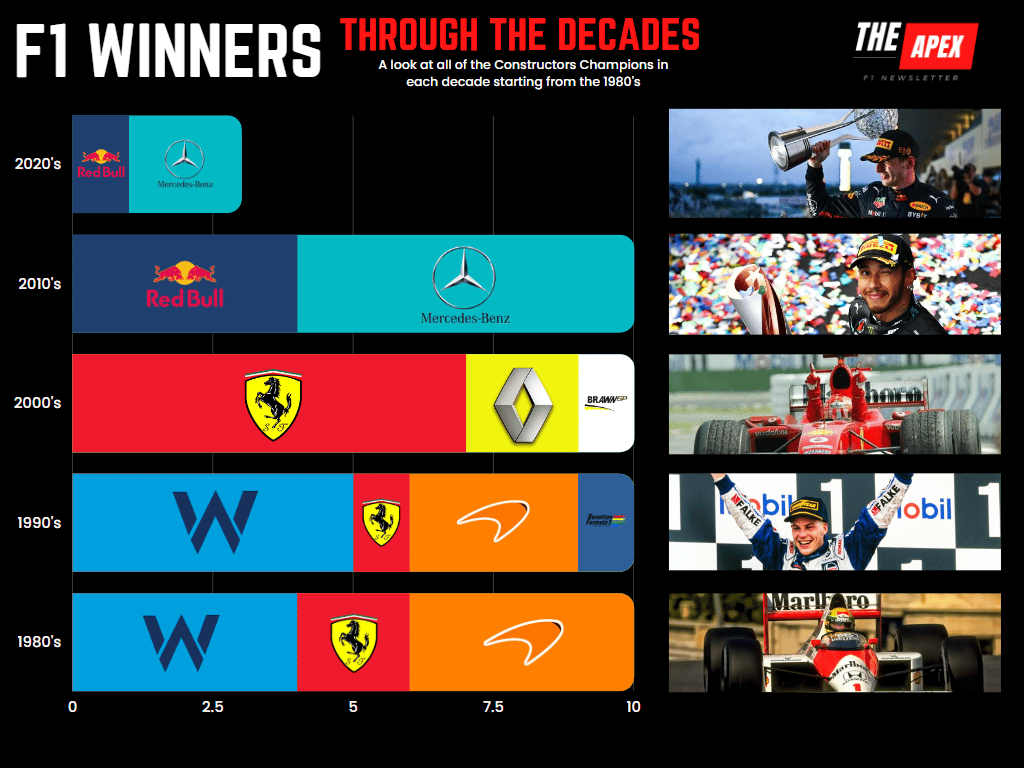
1980’s: McLaren Edges Out Williams
The 1980’s was the last decade where 3 constructors were able to win multiple championships. Williams & McLaren were each able to take home 4 championships while Ferrari was able to take home the remaining two.
The decade featured legendary drivers such as Ayrton Senna, Alain Prost, Nelson Piquet and Niki Lauda who all won drivers championships during the period. The Prost vs. Senna rivalry blossomed in the later half of the decade, one of the most famous rivalries in F1.
McLaren and Williams were the teams to beat during this era. Each constructor took home 4 titles. McLaren put their stamp on the decade during the 1988 season producing the MP4/4, a car that was able to win 15/16 races. It is considered to be the most dominant seasons in F1 history. The only reason McLaren was unable to sweep the season was Senna getting tripped up by a backmarker in Monza.

Senna driving the MP4/4 in the rain
The 1980’s is considered one of the best decades in Formula 1. Since the 1958 season, there have only been 11 instances in F1 where a team won the constructors championship but did not win the drivers championship. Of those 11 instances, 4 occurred during the 1980’s. It is considered one of the most closely contested decades in F1.
1990’s: Williams Takes Control of Formula 1
McLaren carried their momentum from the late 1980’s into the early 1990’s with F1 legend Ayrton Senna leading the team to both the constructors and the drivers titles in the 1990 and 1991 seasons. This gave McLaren 4 consecutive double titles in F1.
Williams stormed back in the mid-90’s claiming 5 constructors titles in a 6 year span, only being interrupted by a young Michael Schumacher driving for Benneton Ford in the 1995 season. Williams helped Nigel Mansell get his first drivers championship in F1, brought Alain Prost on the team to win his 4th and final driver championship, and also made champions of Damon Hill and Jacques Villeneuve.

Jacques Villeneuve celebrating a win in 1998.
This was the last decade of relevance for the Williams team. They faltered in 1998 and 1999 seasons and while they were able to finish P3 in the constructors at times in the early 2000’s, the team was never the same. A shocking fall from grace as Williams is a perennial backmarker these days in F1.
The last year of the 90’s gave fans a glimpse of what was to come in the 2000’s, a Ferrari resurgence and the making of the greatest driver of all time.
2000’s: Schumacher Ferrari Era
When people think of Formula 1 in the 2000’s, they think of Michael Schumacher. The German driver helped Ferrari win 6 straight constructors titles from 1999-2004 and won 5 consecutive drivers titles himself starting in 2000. This broke the Ferrari Ferrari constructors title drought of 16 years and a Ferrari driver title drought of 21 years.
Ferrari was seemingly untouchable in the 2000’s. They won 7 constructors titles in the decade and finished runner up for another. They also introduced one of the most dominant cars of the era with the F2002. Of the 17 races in the 2002 season, the F2002 won 15 times with Schumacher winning 11 of those 15. Schumacher finished in 2nd place on 5 other occasions and Ferrari scored more points than all the other constructors combined that season.

Michael Schumacher in the F2002
Ferrari was able to claim 2 more constructors championships in 2007 and 2008 making it the most successful decade for any constructor in F1 history. Unfortunately, Ferrari has been unable to win another since then, leaving them in a 14 year drought.
2010’s: The Rise of Mercedes
A big reason for the Ferrari championship drought is due to two teams becoming prominent forces in F1. The 2010’s started off with Red Bull securing 4 consecutive constructor and driver titles with Sebastian Vettel. The Milton Keynes team won from 2010-2013 in some very tightly contested championship battles with Ferrari. Red Bull would have likely been the team of the decade had it not been for another team that took charge from 2014 onward.
Spurred by the introduction of new regulations featuring turbo-hybrid engines, Mercedes exploded onto the scene in 2014. Over the years they had accumulated quite the team with Schumacher helping develop their car, Niki Lauda acting as a team advisor and most importantly the signing of Lewis Hamilton.
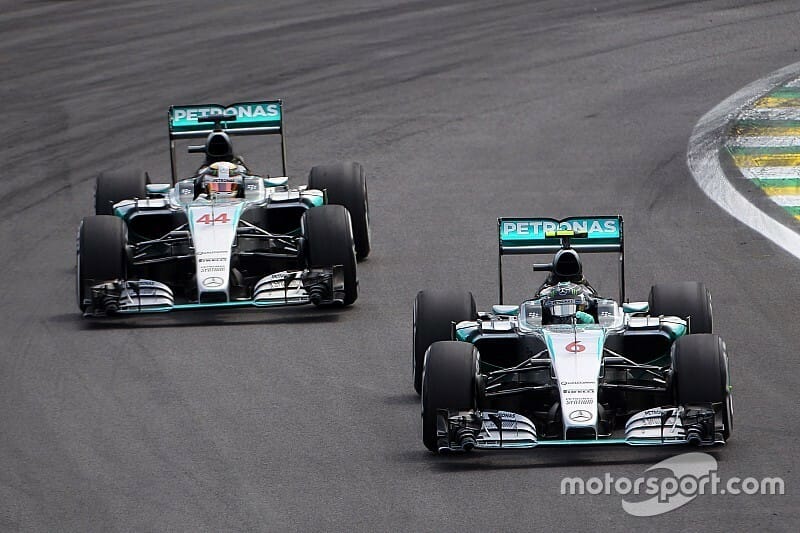
Nico Rosberg and Lewis Hamilton driving the W07 in 2016.
Hamilton and Mercedes rushed in a dominance that had never been seen before in F1. Mercedes won 6 constructors championships in the 2010’s and ultimately won 8 consecutive constructors championships, a F1 record that may never be matched. Lewis Hamilton claimed 6 driver titles during this time, equaling Michael Schumacher for the only two drivers with 7 WDCs. Nico Rosberg was able to beat Hamilton in 2016 for his only title in F1.
2020’s: Red Bull Races to the Front
While Mercedes continued their dominance by winning the constructors titles in 2020 and 2021, it was clear that Red Bull had closed the gap. Max Verstappen won his first drivers championship in 2021, beating Hamilton in the controversial Abu Dhabi finale.
Similar to the 2014 season that kicked off the Mercedes era of dominance, 2022 feature new regulation changes and the re-introduction of ground effect cars. Red Bull took the new regulations changes by the horns (very punny) and created the RB18.

Max Verstappen driving the Rb18 in 2022.
The RB18 quickly staked is claim as one of the best cars ever made in F1. Similar to the MP4/4 and the F2002, the RB18 won 17 of the 22 races that season. Max Verstappen won 15 of those races and took home his second consecutive drivers title and Red Bull’s first constructors title since the 2013 season.
A New Era of Dominance
Now that we know that dominant teams have been around F1 since the beginning, lets go through whether we think Red Bull’s newfound dominance in 2022 (and in 2023 so far) is a good or bad thing in F1. We think every sport needs that dominant team. We know everyone loves a good underdog story. But we also ask ourselves if this Red Bull dominance was even supposed to happen in the cost cap era of F1?
The New Evil Empire of Formula 1
Whether fans like to admit it or not, every sport needs an “evil empire” that despite all odds always finds a way to win. In the NFL this is the equivalent to the Brady-Belicheck ear New England Patriots. In basketball it was the Golden State Warriors with Kevin Durant. In baseball it has almost always been the Yankees.

All of these teams have a few common traits: they won A LOT and for long periods of time, they had star players, and only the bandwagon fans actually liked them. They often set the standard for years and seemingly never made mistakes.
In Formula 1 this was Mercedes for the last 8 years. An unstoppable force whose only competition was themselves. The entire grid was always playing catch up to Mercedes. Even when it seemed like Mercedes didn’t have the fastest car, they always managed to win when it counted. The more they did this the more frustrating it became for other teams and fans.
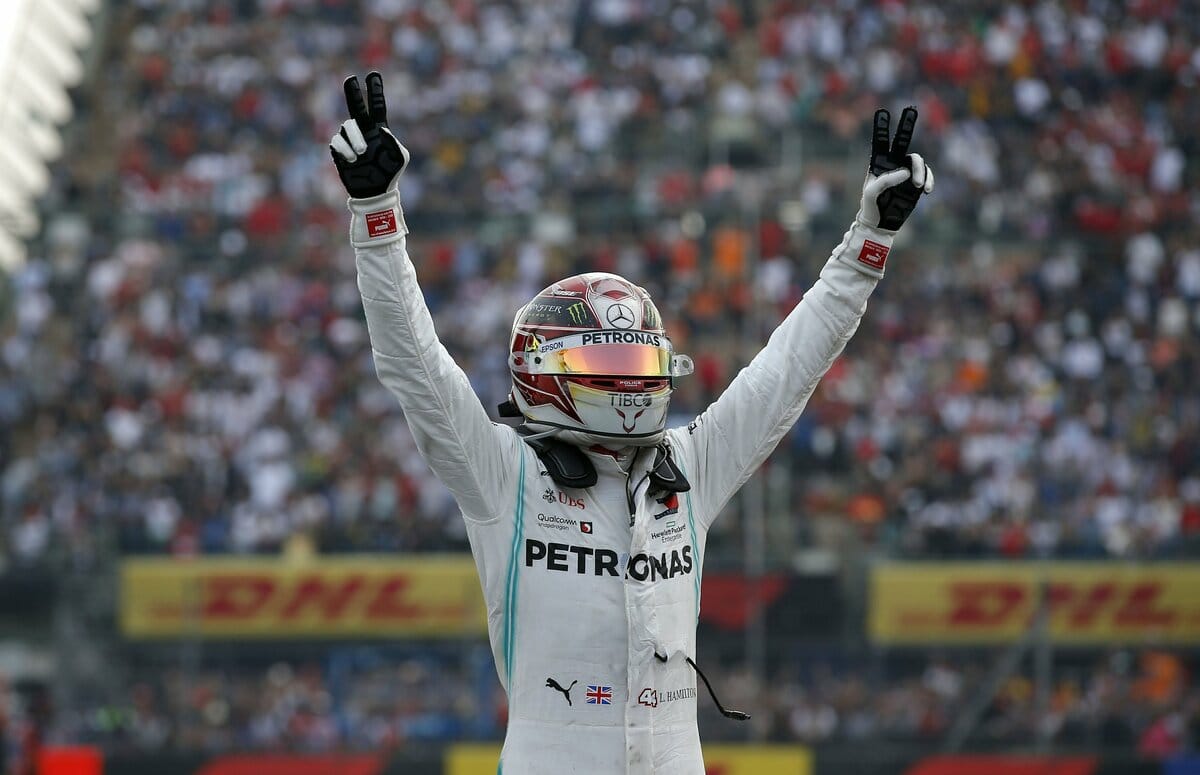
The sport needs the team that everyone else is chasing down. Having a team like this inspires others to go above and beyond to do the impossible and beat the unbeatable. They are chasing the top dog of the sport. Red Bull is seemingly on the cusp of becoming the new empire of F1.
A few challengers have already tried to rise to the challenge. Ferrari is right at the top and have every opportunity to win in 2023. Mercedes is looking to get back to the powerhouse they once were a few years ago. Even Aston Martin, using developments inspired by Red Bull, is seemingly competitive this year.
We will see how it shakes out but it will be exciting to see who has what it takes to take down Red Bull.
Everyone Loves an Underdog
The underdog story is as old as time. Whether its David vs Goliath, the New York Giants vs New England Patriots, Appalachian State vs Michigan, Buster Douglas vs Mike Tyson, Leicester City wining the Premier League, the list goes on and on.
When there is a dominant team in a sport, everyone feels like they are the underdog. It can unite a fanbase in the pursuit of the ultimate goal of winning against the team that seems unbeatable. The fans thing their team is the hero and the top team is the enemy.
This year, while the Tifosi may not see it this way, Ferrari is the underdog to Red Bull. It will take a herculean effort to upset them but that is what makes sports so much more fun. Anything can happen. Ferrari is F1’s best bet from stopping Red Bull from tearing through the grid again. Can they pull it off?

Leclerc battling Verstappen at the 2022 Bahrain GP.
Aston Martin is the other pleasant surprise underdog of F1. It’s even more extreme since they finished P7 in the constructors championship. Just look how the fans of F1 have reacted to the promise of Aston Martin this season. Everyone is frantically cheering on Fernando Alonso hoping he can somehow pull off the impossible and win his 3rd championship.
Is the Cost Cap Actually Working?
The heads of Formula 1 have actually been trying to prevent another Mercedes from dominating F1 for so long. In the past, the top teams have been able to throw exorbitant amount of money at their problems and work their way through it. Smaller teams weren’t able to do this as they didn’t have an unlimited amount of money to spend on development.
In 2021 F1 introduced a cost cap that prohibited teams from spending over $145m. This was designed to limit the top teams from spending double, triple or more than the bottom teams in F1. We have also seen that it amplifies mistakes that teams make in terms of development. Mercedes got their development path wrong and instead of quickly developing tons of new parts for their car to play catch up, they have to be very tactical on which avenues they should explore.
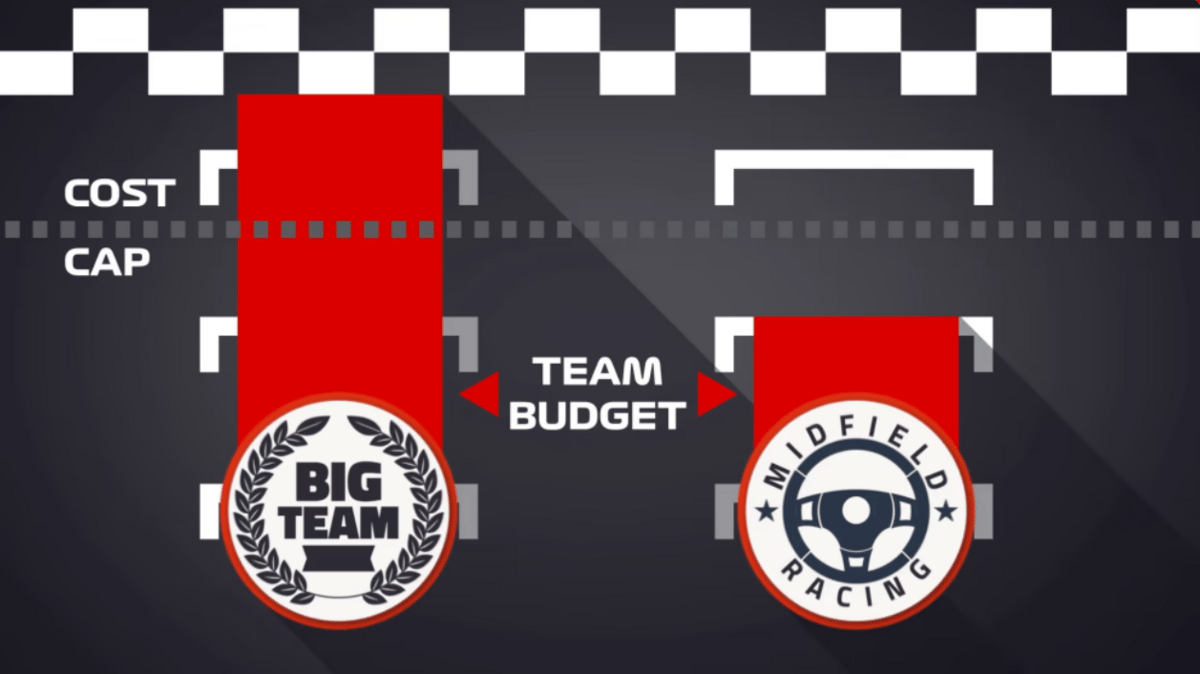
The opposite of that is Red Bull. They actually breached the cost cap in 2021 and had to pay a $7m fine and reduced their wind tunnel testing by 10%. This didn’t seem to affect them much in the 2023 season. In fact, they look better than they did in 2022. So how effective is the cost cap if one team (who breached it) is head and shoulders above the rest in terms of development?
When F1 leaders introduced the cost cap it likely wasn’t their intention to limit teams ability to catch up to the leader but its done exactly that. Red Bull got their car so right while others struggled with the new regulations. Now with the cost cap in place Red Bull just needs to keep making marginal improvements because the other teams can outspend them to fast-track their development. This was an unforeseen issue with how the cost cap currently works.
What We Would like to See in 2023
While we think it is nice seeing another team other than Mercedes at the helm of F1, we aren’t particularly looking for a team that is 1 second per lap quicker than every other team at every track. This is basically a repeat of the Mercedes years of prominence.
What we would like to see is something similar to the 1980’s a few very capable teams duking it out every season and top drivers needing to actually compete and take risks to win races. We saw this in 2021 with Verstappen and Hamilton. The early 2010’s had great bouts between Vettel, Hamilton and Alonso. The Senna vs Prost rivalry will never be forgotten.
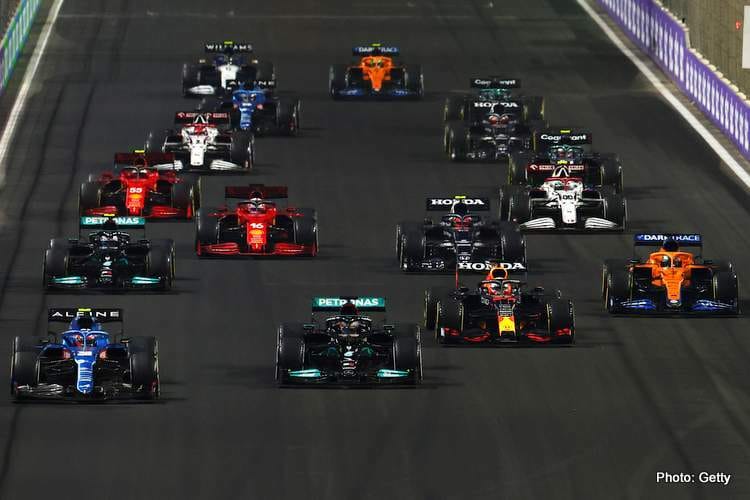
Will we get that in 2023 and beyond? Who knows, but Ferrari is in the hunt. Fernando Alonso is looking to rekindle a championship run. Mercedes is always lurking in the grass waiting to strike. While it is clear Red Bull is at the top, we don’t think the other teams are too far behind.
Upcoming Posts & Reader Feedback
We will be back on Monday with more fun and interesting F1 content. Going forward, we will be sending newsletters every Monday & Thursday!
If you like the post please subscribe to the newsletter. We publish multiple articles a week and will be doing in-depth breakdowns as the season moves along.
We are also posting content on Twitter (@TheApexF1news) and Instagram (@theapexf1news) if you are interested in following there as well. You can also follow the links in the footer to get to these pages.
Feel free to leave any comments or recommendations on topics you would like to be covered. Thanks for reading, we really appreciate the support!
Reply